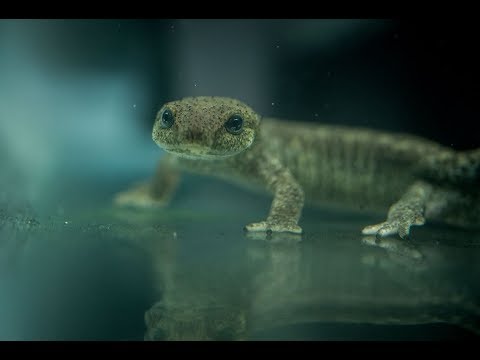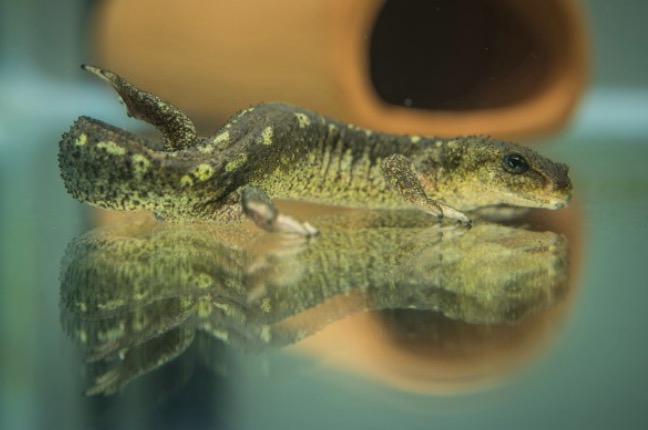One of world’s rarest amphibians successfully bred by conservationists at Chester Zoo

Conservationists at Chester Zoo have successfully bred one of the world’s rarest amphibians in a bid to save it from extinction – the first time the feat has ever been achieved outside the species’ native Catalonia.
Twelve Montseny newts, one of the most endangered species in Europe, have hatched at the zoo where a team of experts are helping to ensure the continued survival of the critically endangered population – ahead of a future release into the wild.
It is the first time the newt has ever been kept outside of Catalonia and the young hatched within the programme will be introduced back to the Montseny mountain range in north-eastern Catalonia to help boost numbers.
The mountains, which are approximately 100km north of Barcelona, are the only place where wild Montseny newts live.\

The zoo, renowned for its conservation work with threatened reptiles and amphibians, has been asked to join the Barcelona Provincial Council, the Catalan government’s Department of Territory and Sustainability and Barcelona Zoo in caring for the highly threatened species – becoming the first institution in the world outside of Catalonia to join the recovery plan.
Experts in Chester have created a special, purpose-built breeding facility for 12 pairs of newts, based away from all other amphibians housed at the zoo in order to ensure their bio-security.
In parallel with the breeding programme, conservation efforts are also being made to improve the newts’ habitat in the wild in preparation for their reintroduction – including improving the water quality and ecological flow of the streams it lives in.
Dr Gerardo Garcia, the zoo’s Curator of Lower Vertebrates and Invertebrates, said:
The Montseny newt can only be found in a mountainous region not far from Barcelona and is, without doubt, one of the most endangered species in Europe. It is teetering perilously close to the brink of extinction and requires immediate action if we are to establish more numbers and save them.
The newts are adapted to cold mountain streams and require pristine habitat but, sadly, they are affected by problems linked to climate change such as rising temperatures and decreasing water resources and human activities like deforestation.
Thankfully, vital conservation work to protect the species’ habitat is now ongoing and a conservation breeding programme, which we’re now part of, is ensuring there’s a genetically viable population of newts that can be reintroduced to the wild.
Growing up, I spent time in the mountain forests around Barcelona where the newts are found and so to now be part of the efforts to save them is a real honour. The mountains are where my journey as a conservation biologist began and so, many years on, for the team and I to be able to use our skills and expertise to help save a species that lives there is hugely important.
Montseny newts are listed as critically endangered by the International Union for the Conservation of Nature (IUCN). Recent estimates indicate no more than 1,500 remain in an area less than eight km2.
They are one of the two most threatened amphibians in Europe together with the Karpathos frog (Pelophylax cerigensis), a frog endemic to the Greek island of Karpathos.
Francesc Carbonell Buira, Biologist for the Government of Catalonia, added:
This is a species that had gone unnoticed by scientists until the late 1980s.
A population disappeared late last century and, although some are currently stable, some are in a very unfavourable state of conservation. That’s why several administrations have come together to improve their conservation status – both through work in the wild and through a breeding programme.
So far, over the 10 years it has been up-and-running, more than 2000 Montseny newts have been raised and four new populations created. Now Chester Zoo is on board, given its enormous experience in breeding threatened amphibian species, we hope the programme will go from strength-to-strength and that we can create a much brighter outlook for these wonderful animals.
Spotted something? Got a story? Email: [email protected]
Latest News
